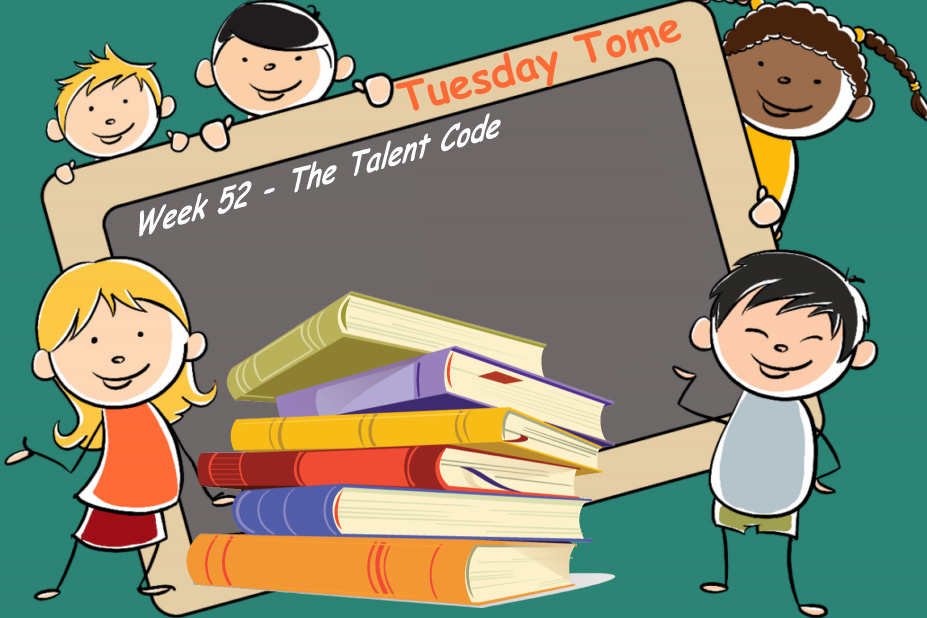We had to read The Talent Code during the month of October at the Anna Porter Public Library Group Book. The author, Daniel Coyle, traveled all over the world to talent hotbeds: Russia for tennis, upstate New York for violin and other instruments, Brazil for soccer, Costa Rica for baseball.
The subtitle says, “Greatness is not born. It is grown. Here’s how.” So the whole book details how a small tennis club in Moscow can produce more Top 20 female tennis players than all the American tennis academies combined in the last decade. And how all these other places can produce the best violinists etc in the world. It turns out, they have similarities, the talent hotbeds.
The coach or teacher is usually somebody older than 60 years old. Somebody who has seen a lot, who does not have small children to tend to at their own home, somebody with a lot of patience, but also somebody who will not let you off the hook if you make mistakes – somebody who does what Coyle calls “master teaching.”
The Russian kids will not even touch a tennis ball for the first six months or so of training. They only work with their rackets, learning the motion of service and others. That’s right. They swing in the air hundreds of times a day, hours upon hours.
The violin players – that’s a different ball game altogether, but you can recognize the principle of deep practice there, too – the second principle of building greatness and cultivating talent, according to Coyle. These are Suzuki players, and in the beginning they don’t even have an instrument. They listen to the songs they will eventually play over and over again, until every sound has been ingrained in every fiber of their being. Then, they start holding a cardboard violin. After six months, maybe they will graduate to an actual violin and a bow.
The other principle is ignition or intrinsic motivation or passion. A lot of children will not persevere through music lessons or tennis practice unless their parents make them. But then comes the moment – and many children can identify that moment – when something came up on the inside, like a light that got turned on. They started liking their instrument, their sport, their hobby. They started more then liking it. They started loving it. And the more they love it, the more they practice, the better they get, and the more they practice, because they see the results of their hard work.
Brain research has shown how talent is just a very thick layer of myelin, wrapped around the neurons. Practice makes perfect, but practice has to be deep practice – perfect practice builds myelin. For instance, if you can recognize the song a violin player is playing, he is playing it too fast. And there are other things which I will not detail here.
It’s a fascinating book and I loved it, but most people at my book club did not, for various reasons. To each his own. This book inspired me to be even more careful with the habits I am allowing the children to develop in their practice whether it be violin, piano, spelling or math.
